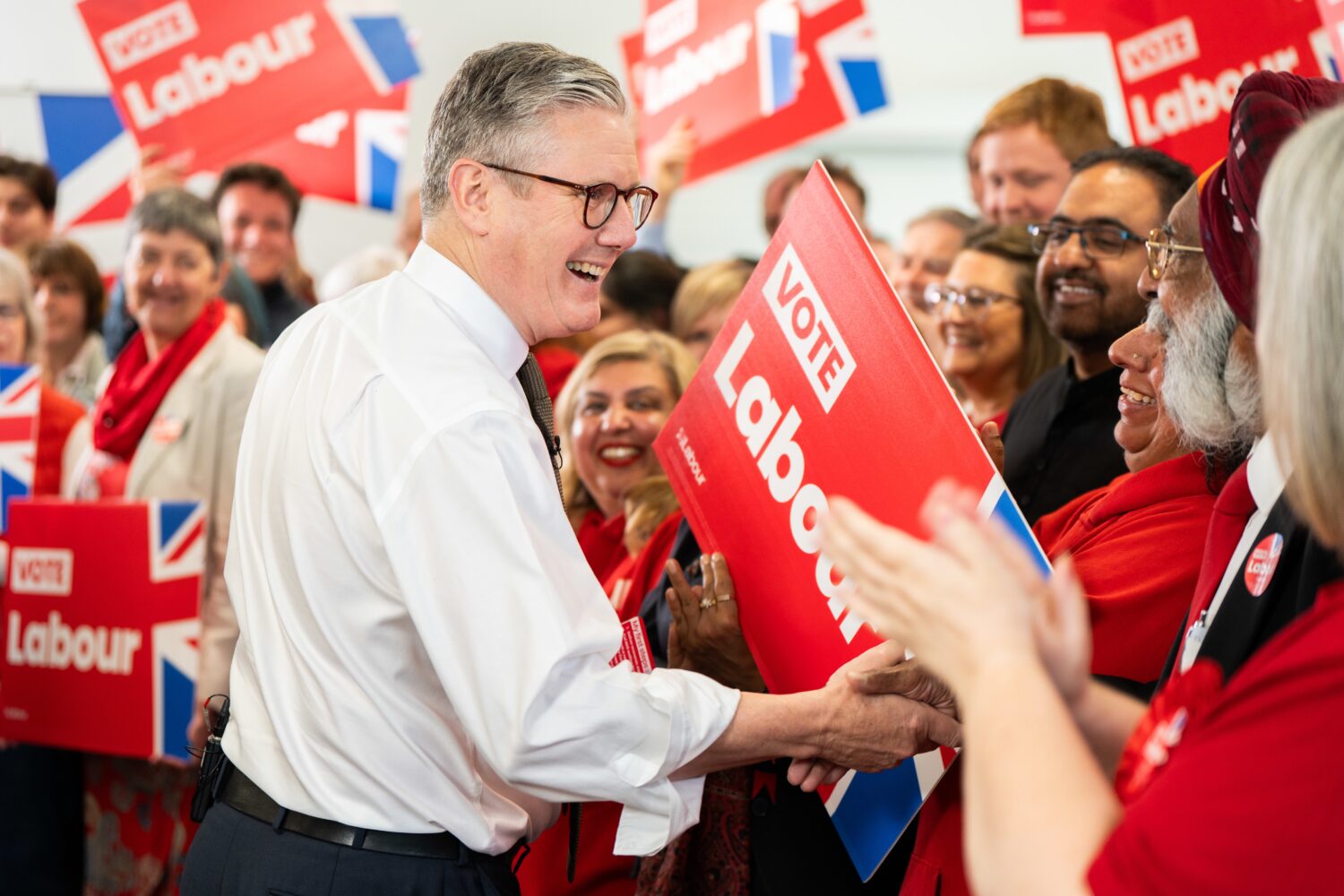Governing to Win
Incoherent policy lost the Tories the election. Labour must act quickly to avoid a similar fate, writes Colm Murphy
It is a lazy generalisation that the Labour party is incapable of enjoying its own success. But there is a grain of truth to it. On the night of the massive 1997 landslide, Tony Blair’s press secretary Alastair Campbell wrote in his diary that he felt ‘flat’ and ‘deflated’. In 2024, one of the biggest landslide majorities in British political history was greeted by worried reflections about its resilience.
Blair, of course, went on to win two further elections. But today, such anxieties are far from groundless: this is a ‘Jenga’ majority. Its peak is high, but the base is full of holes. Collapse is a distinct possibility.
What, then, should our new government do to shore up its electoral position? No doubt there will be voices calling for a ‘permanent state of campaigning’. Yet while it is true that successful statecraft requires governments to think strategically about the next election and to sell policy successes, I would make a simpler suggestion: to secure re-election, there is no substitute for a coherent policy agenda.
The previous government illustrates this point perfectly. For the Conservatives, this election has been a calamity. With 121 MPs, the party has fallen to its lowest number of Commons seats in its modern history – lower even than the 156 returned during the 1906 Liberal landslide.
How did the Conservative government engineer such a catastrophe? Disasters have many parents. But it mattered that the outgoing government had ceased to govern by polling day. Instead, it chased short-term headlines in the vain hope that doing so might improve dire polling figures. Its morally offensive and incompetent pursuit of the Rwanda scheme was characteristic.
As the journalist Stephen Bush argued during the campaign, a dire Conservative result was the unavoidable consequence of the government’s “lack of focus and grip” on public services. Fighting an election with historically high net immigration, record NHS waiting lists, and overflowing prisons is nothing short of suicidal when your core voter is a socially conservative pensioner. Rishi Sunak’s decision to use scant financial and political capital to cut taxes – rather than, for example, resolving the junior doctors’ strikes – was calamitous.
Public service collapse had been, of course, the nemesis of Conservative hubris since 2010. We can summarise the era of Conservative-led government through three agendas: austerity, Brexit, and ‘levelling up’. All failed, at least when judged by what their advocates promised.
Admittedly, global factors were partly to blame. The pandemic and the outbreak of conflicts in Eurasia certainly contributed to the state of the country at the end of their tenure.
Even so, their record was poor. George Osborne consistently missed his deficit reduction targets despite starving the country of investment at a time of record low interest rates. Crises that derailed the Conservative government in the 2020s, such as local government bankruptcies and a collapsing legal system, were directly attributable to dubious legacy of their 2010-15 predecessor.
Sunak’s problems similarly stemmed from the incoherence of more recent bequests from his party. Boris Johnson’s combination of ‘levelling up’ and ‘get Brexit done’ was a potent electoral pitch in 2019, one which signalled a break from austerity. However, it combined pledges for low taxes and ‘levelling up’, lower migration and public service renewal, all while the government ripped up the country’s growth model by exiting the single market and customs union. Johnson’s campaign secured a winning coalition. But it bequeathed a fatally incoherent governing agenda.
The new Labour government should be wary of this danger. There is no guarantee that the Conservatives will ‘own’ the dysfunctions afflicting the UK in the 2020s for long.
An instructive period in this regard is the 1970s. Marked, like today, by political fragmentation, inflation, geopolitical disorder and energy transition, the decade also witnessed two successive governments collapsing under the weight of their own contradictions.
The first was Ted Heath’s Conservative government. Initially promising market-liberal reforms, the government panicked when unemployment rose and undertook fiscal stimulus – just before the 1973-4 oil crisis. Rapid inflation and further unemployment duly followed. In desperation, the government turned to nationalisation and ‘incomes and prices’ policies. This panicked handbrake turn towards interventionist corporatism pleased nobody: neither unions nor businesses; neither the right nor the left. Its incoherent approach buckled under the pressure of the miners’ strike, the three-day week, and the 1974 ‘Who Governs?’ election.
The second was Jim Callaghan’s Labour government. Callaghan and his predecessor Harold Wilson promised a ‘social contract’: voluntary union wage restraint to control runaway inflation in return for the ‘social wage’ of public services investment. Yet the 1970s Labour party was increasingly riven by factionalism, with the NEC and the Cabinet sketching out wildly divergent policies. The party also split over EEC membership during the 1975 referendum, and over devolution in Scotland and Wales. Then, after the 1976 IMF crisis, the ‘social wage’ was slashed through Denis Healey’s cuts; the ‘social contract’ became nothing more than a method for suppressing the wages of trade unionists and public sector workers to control inflation. The contradiction between the promises of 1974 and the reality by 1978 was unsustainable. The ‘winter of discontent’ followed.
Starmer’s government should take note. As has been pointed out elsewhere, the constituent parts of Labour’s 2024 manifesto do not add up without some rather big assumptions. The manifesto promised clean power by 2030, the renewal of the NHS, an attack on class barriers, and an increase in defence spending – all worthy goals in an era of geopolitical fragmentation, an ageing society, and the climate emergency.
However, it also pledged to uphold fiscal rules on spending and debt and ruled out (or failed to specify) major increases in taxation. This is not inevitably incoherent. Labour squared the circle during the campaign by promising higher tax revenues and private sector investment from revived economic growth. Indeed, the new government has taken early steps on this front, particularly on planning reform.
Nonetheless, successful governments plan for all eventualities. If growth fails to arrive, and if Starmer’s government does not wish to collapse under the weight of its policy contradictions, it should develop a plan B. Put more bluntly: Starmer and Rachel Reeves may soon struggle to ignore the question of tax.
Image credit: Keir Starmer via Flickr

